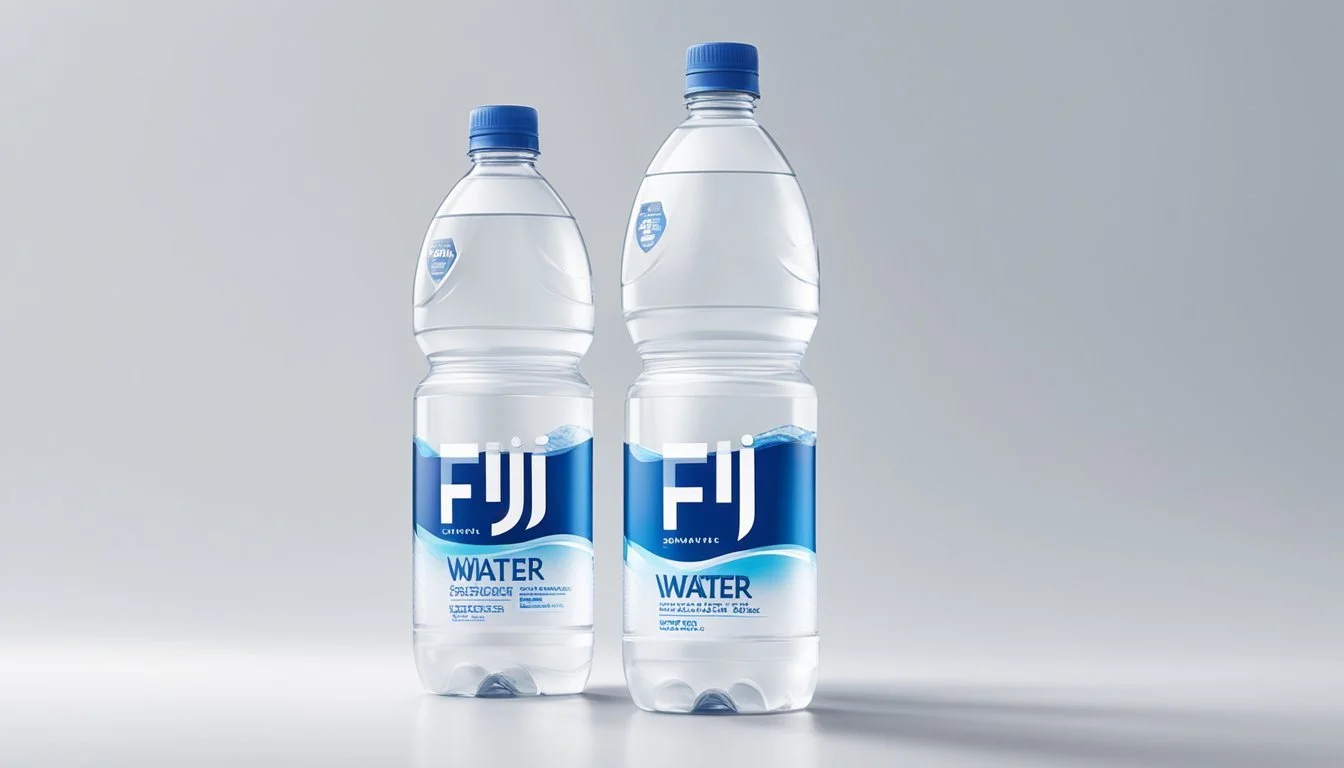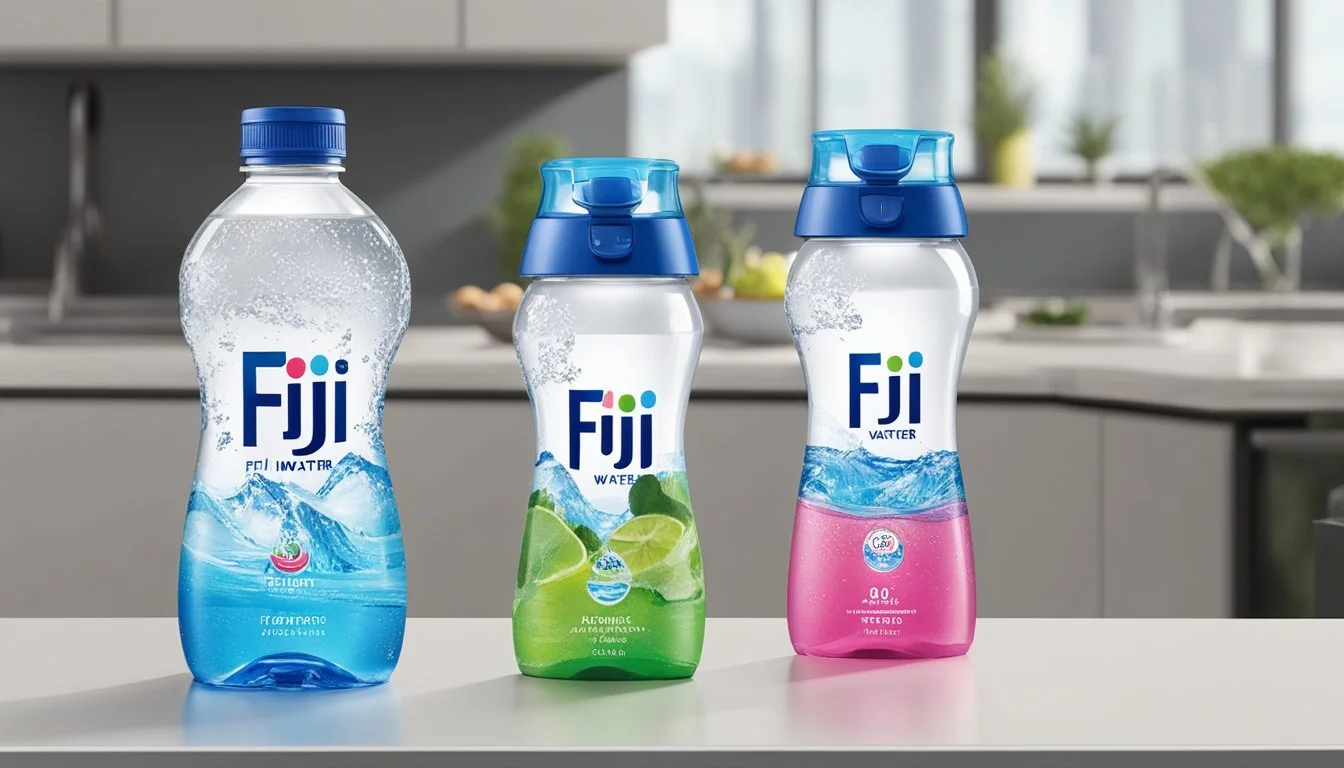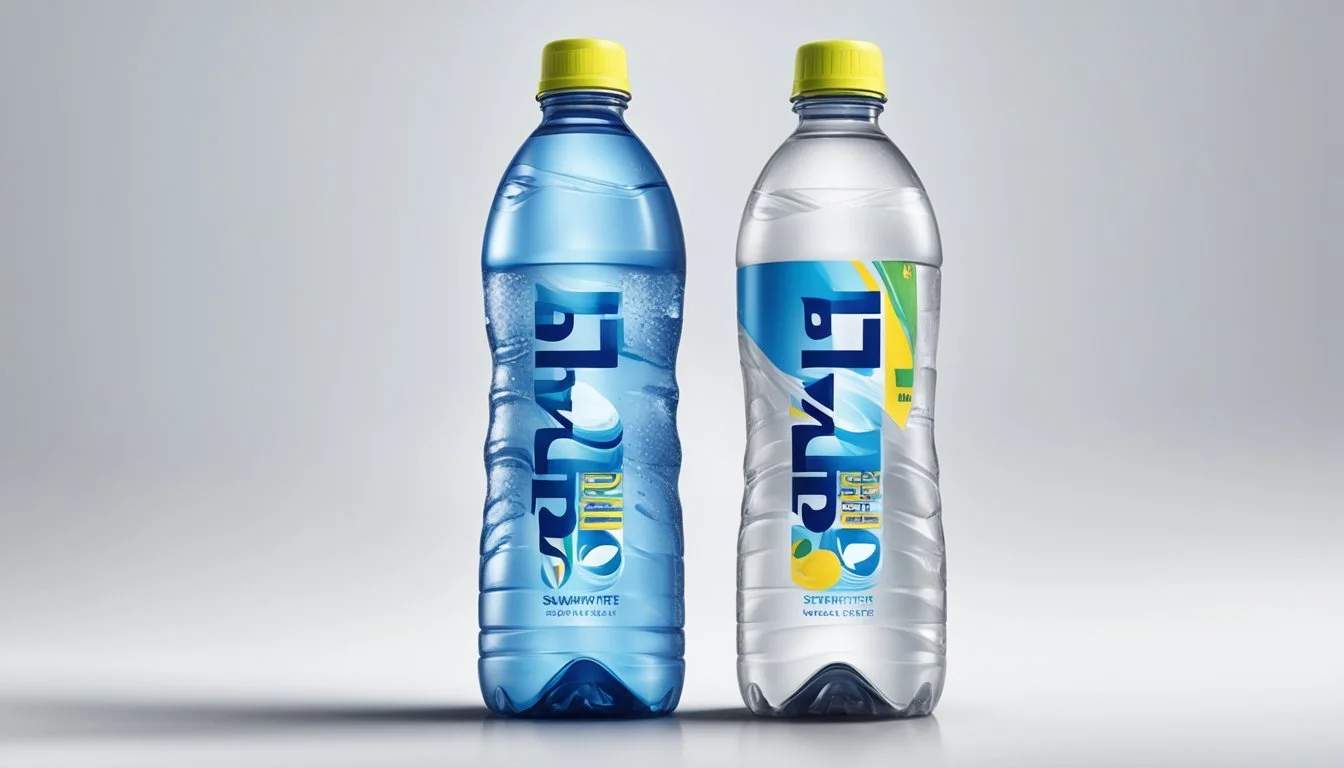Fiji vs. Smartwater
Comprehensive Comparison of Bottled Water Brands
When it comes to bottled water, the marketplace is saturated with options, each promising purity, taste, and added health benefits. Among the plethora of choices, Fiji Water and Smartwater have emerged as leading brands. Fiji Water, sourced from an aquifer in the Fiji Islands, touts its natural artesian origins, while Smartwater is known for its vapor-distilled purity and added electrolytes for taste. Consumers often weigh these characteristics, along with brand reputation and price, when choosing their preferred bottled water.
Choosing the better bottled water brand isn't just about taste; it's also about health implications and environmental impact. Smartwater's distillation process mimics the hydrologic cycle and adds in electrolytes, appealing to those who prioritize cleanliness and a crisp taste. Fiji Water, on the other hand, boasts a high mineral content due to the volcanic rock it filters through, which some enthusiasts claim enhances its health benefits. Each brand brings a unique aspect to the table, and their differences offer an interesting subject for those conscientious about what they drink.
Addressing the question of which bottled water is better is multifaceted, encompassing factors from mineral content and pH level to packaging and accessibility. While Fiji and Smartwater both claim to offer superior products, the definition of 'better' may ultimately come down to personal preferences and values, such as concerns for environmental sustainability or the search for a particular mineral composition that aligns with one’s dietary needs.
Overview of Bottled Water Industry
The bottled water industry has seen significant growth and consumer demand, leading to a diverse range of products. Brands have placed emphasis on quality, sourcing, and branding to capture market share in this competitive landscape.
Global Bottled Water Market
The global bottled water market is a dynamic sector that continues to expand. The industry enjoyed its most significant growth in 2016, with approximately an 8% increase in that year alone. Volumes of bottled water sold have steadily increased, with data showing a shift from 13.8 billion gallons to 14.4 billion gallons between 2018 and 2019. With health-conscious consumers increasingly choosing water over sugary drinks, bottled water has surged in popularity as an alternative.
Popular Bottled Water Brands
In the realm of bottled water brands, consumers are met with a plethora of choices. Some of the well-known names that dominate the market include:
Dasani (Coca-Cola’s entry)
Aquafina (by PepsiCo, received a net favorability rating of 44 in the US)
Evian (French brand known for its naturally sourced water)
Nestle Pure Life (offering purified bottled water)
Fiji Water (has a significant presence with its artesian water)
Voss (Norwegian brand recognized for its distinct bottle design)
Poland Spring (a favorite in the northeastern United States)
Essentia (alkaline water marketed for its higher pH)
Perrier (popular for its naturally carbonated mineral water)
Lifewtr (stands out with its pH-balanced water and artistic labels)
Mountain Valley (spring water from the Ouachita Mountains)
San Pellegrino (Italian mineral water famous for its fine bubbles)
Liquid Death (markets itself with a unique, edgy approach)
Fiji Water has emerged as a top choice among American consumers, with a high net favorability rating, highlighting the importance of brand perception in the industry.
Characteristics of Fiji and Smartwater
When comparing Fiji and Smartwater, the distinctive sourcing and purification processes utilized by each brand stand out as key differentiators.
Fiji Water: From Tropical Rainfall to Bottle
Fiji Water originates from the tropical islands of Fiji. This brand boasts that it collects water from an artesian aquifer that lies deep within the Earth, protected by layers of volcanic rock. The volcanic rock naturally filters the water and also enriches it with minerals and silica, giving Fiji Water its signature soft mouthfeel and smooth taste. This water's journey begins with tropical rainfall and ends in a bottle without human contact, claiming to preserve its purity.
Smartwater: The Science of Vapor-Distillation
Smartwater is created through a process inspired by the natural hydrologic cycle. Its production employs vapor-distillation, a technique that simulates the way rainwater is purified by evaporating and condensing. The resulting vapor-distilled water is then re-mineralized by adding electrolytes for taste. Smartwater prides itself on its proprietary Hydro-7 purification method, designed to remove more impurities than standard distillation. To further ensure the purity of the water, it undergoes additional filtration stages, including passing through ultraviolet light.
Comparative Analysis
In this section, we will compare Fiji and Smartwater across various parameters including the taste profile, mineral content, and compliance with quality and purity standards.
Taste Profile Comparison
Fiji water is often recognized for its smooth and soft taste, which can be attributed to its source – the tropical rainfalls of Fiji. This natural filtration grants it a unique flavor that tends to have a pleasing sensation on the palate. Smartwater, on the other hand, is vapor-distilled, with added electrolytes for taste. This results in a clean, crisp taste that may be preferred by those who enjoy a more neutral flavor profile.
Mineral Content and Health Benefits
Minerals in Bottled Water:
Mineral Fiji Water Content Smartwater Content Calcium Present Added Magnesium Present Added pH Level Slightly alkaline Neutral to slightly alkaline
Fiji Water contains natural minerals like calcium and magnesium, which are beneficial for bone health and metabolic function. In contrast, Smartwater adds these minerals post-distillation for enhanced taste and replenishing benefits. While the presence of minerals is associated with health benefits, it is important to note that excessively high levels of certain minerals, such as heavy metals, can be detrimental to health. Both brands maintain levels within regulatory standards to ensure safety and promote hydration.
Quality and Purity Standards
Both brands claim to offer high quality and purity in their bottled water. Fiji Water sources from an underground aquifer in the Fiji Islands, protected from external contaminants. The water undergoes natural filtration through volcanic rock which adds to the mineral content and alkalinity, and also helps to remove impurities. Smartwater prides itself on its vapor distillation process, which simulates the hydrologic cycle, coupled with further purification through filtration and the addition of electrolytes.
The concern for purity also means examining potential contaminants like heavy metals, which both brands work diligently to keep within safety limits. Regular testing ensures compliance with international quality standards, ensuring that the water is not only refreshing and hydrating but also safe for consumption.
Environmental Impact and Sustainability
The environmental footprint of bottled water companies is shaped by their bottling processes and the initiatives they take towards sustainable packaging and recycling.
Bottling Processes and Environmental Concerns
Bottled water brands have faced criticism for the environmental impacts of their bottling processes. These concerns include the carbon footprint associated with transporting water, particularly for brands like Fiji Water that source from remote locations, and the energy consumption and water usage in the bottling process itself. In contrast, brands like Smartwater, which utilizes multiple sources, may have a different set of environmental impacts. It's essential to consider two main factors: the natural resources used in sourcing the water and the energy expended to bottle and distribute the products.
Packaging and Recycling Initiatives
Fiji Water has made a significant change to reduce its environmental impact by transitioning its 500 mL and 330 mL bottles in the U.S. to 100% recycled plastic (rPET). This move signals meaningful progress in the company's goal to reduce single-use plastic waste. On the other hand, Smartwater offers products in both plastic and glass bottles, providing consumers with a choice that affects the product's overall sustainability. For instance, glass packaging can be more easily recycled and reused but might also be less convenient for consumers who prioritize lightweight and unbreakable containers.
Recycling initiatives are critical in mitigating the environmental impact of bottled water. Effective recycling can significantly reduce the amount of new plastic or glass that must be produced, and hence limit the overall environmental footprint of bottled water brands. Consumers play a pivotal role in this process, as the benefits of these initiatives depend heavily on proper disposal and recycling of the bottles.
Consumer Preferences and Trends
In the competitive landscape of bottled waters, consumer choices are increasingly guided by quality, taste, and perceived health benefits. Brands like Fiji and Smartwater have positioned themselves distinctively to cater to these evolving preferences.
Shifts in Consumer Drinking Habits
Consumers are showing a marked shift towards bottled waters that are marketed as pure and natural. Where Smartwater offers vapor-distilled water with added electrolytes, Fiji provides water that is naturally filtered through volcanic rock and contains natural minerals. The market is experiencing a gradual decline in the popularity of tap water and generic purified options, as individuals are willing to pay a premium for bottled waters that they perceive as superior in purity and taste. Moreover, environmental concerns are prompting consumers to seek out brands with sustainable practices and packaging solutions.
Emerging Preferences for Alkaline and Artisan Waters
The trend toward alkaline water is growing, with many fitness enthusiasts and health-conscious consumers believing in its hydration and health-promoting properties. Although neither Fiji nor Smartwater is alkaline water, they both enjoy popularity in the category of premium bottled waters. Fiji, sourced from an artesian aquifer in the Fiji Islands, taps into the consumer desire for exotic and untouched sources, while Smartwater, through its filtration process, caters to those prioritizing purity. Enthusiasm for artisan waters from specific groundwater sources is also on the rise.
Consumers’ preferences for bottled water are increasingly influenced by not just the product itself but also by the story and ethos of the brand behind it.
Price Comparison and Value
When consumers stand in the bottled water aisle, one of the critical factors influencing their choice is price. Fiji Water is often positioned as a premium brand, with prices reflecting its luxurious image. Its artesian source and sleek bottle design are marketed to convey a sense of exclusivity. In comparison, Smartwater is priced as a mid-range product, offering features like electrolyte-enhancement which may appeal to health-conscious buyers.
A financial breakdown between the two illustrates the disparity:
Fiji Water (500ml): Approximately $2.00 - $2.50
Smartwater (600ml): Approximately $1.50 - $2.00
Consumers may feel that Fiji Water’s cost aligns with a luxurious mouthfeel and branding, while others may prioritize Smartwater's affordability and added electrolytes. It is important to note that both brands can be considered more expensive than generic or store brands, though they are each positioned differently in the market.
Price-sensitive purchasers who drink bottled water frequently might find Smartwater more appealing for regular consumption due to its lower price point. In contrast, those who enjoy indulging in the perceived luxury of Fiji Water may consider its higher cost to be reflective of its value proposition and are often willing to pay more for its distinct taste and branding.
It should be noted, however, that the concept of value varies between individuals, with some prioritizing the taste and origin of the water, while others consider the environmental impact and practicality of the packaging in determining the better choice for their needs and lifestyle.
Final Verdict
In assessing both Fiji and Smartwater, consumers must weigh the factors of health benefits, taste, and environmental impact. Each brand holds its unique advantages.
Which Water Wins: Fiji or Smartwater?
Fiji Water is often lauded for its smooth taste, derived from natural artesian sources. With a higher mineral content, it may be considered more refreshing by those who prefer a distinctive water taste. However, this brand falls short in environmental considerations due to its single-use plastic bottles which potentially impact endocrine function.
Smartwater, on the other hand, undergoes vapor-distillation with added electrolytes, aiming for a taste that's often described as rejuvenating. Smartwater's lower oxidation properties imply a health edge, and the brand champions a cradle-to-cradle design for its bottles, indicating a stronger environmental commitment.
Recommendations for Different Consumer Needs
For those prioritizing taste and mineral content: Fiji may be the best water choice.
For health-conscious consumers who value added electrolytes and lower oxidation: Smartwater is the recommended brand.
Environmental impact is a critical deciding factor: Smartwater's eco-friendlier approach could swing preference in its favor.
Individual preferences for what constitutes the most refreshing or rejuvenating experience will vary, and the final choice will also hinge on one's personal values regarding sustainability. Each brand offers distinctive benefits, catering to different consumer needs.






